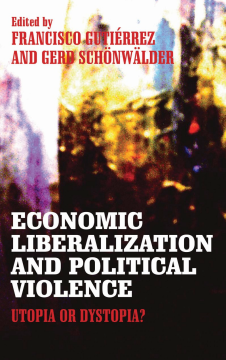
Additional Information
Book Details
Abstract
Globalisation has spread neoliberal political economies worldwide, but is the globalising of this economic system a tool for spreading peace and prosperity, or a harbinger of conflict and war?
The authors examine the effect of neoliberalism on violent conflict and war-making in Sudan, the Ivory Coast, Peru and Colombia. Through quantitative and qualitative analyses they challenge advocates and opponents of neo-liberal reforms, revealing that the shift to neoliberal policies has produced widely diverging outcomes in different contexts; proving that the notion of global neoliberal homogeneity is flawed.
'An important and original work ... essential reading for anyone who wishes to understand the dynamics of conflict and development in the 21st century'
James Putzel, Professor of Development Studies and Director of the Crisis States Research Centre, London School of Economics
Table of Contents
| Section Title | Page | Action | Price |
|---|---|---|---|
| Cover | Cover | ||
| Contents | v | ||
| Foreword | vii | ||
| Introduction | 1 | ||
| Part One | 11 | ||
| 1. Mechanisms | 13 | ||
| 2. War, Peace, and Liberalism: A Quantitative Approach to the Relation between Economic Globalization and Armed Conflict | 49 | ||
| Part Two | 91 | ||
| 3. Economic Liberalization and Politics in Uganda | 93 | ||
| 4. Côte d’Ivoire: The Political Economy of a Citizenship Crisis | 126 | ||
| 5. Multiple Uses of Neoliberalism: War, New Boundaries, and Reorganization of the Government in Sudan | 173 | ||
| Part Three | 207 | ||
| 6. Colombia: The Re-structuring of Violence | 209 | ||
| 7. War and Neoliberal Transformation: The Peruvian Experience | 245 | ||
| 8. Economic Liberalization and War: The Central American Scenario | 285 | ||
| Conclusions | 327 | ||
| Index | 343 |
